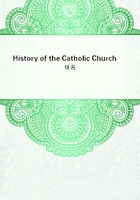
第178章
This complaint was forwarded to Convocation for a reply. The bishops, while vindicating for the clergy the right to make their own laws and statutes, showed themselves not unwilling to accept a compromise, but Parliament at the instigation of Henry refused to accept their proposals. The king, who was determined to crush the power of the clergy, insisted that Convocation should abandon its right to make constitutions or ordinances without royal permission, and that the ordinances passed already should be submitted to a mixed commission appointed by the authority of the crown. Such proposals, so contrary to the customs of the realm and so destructive of the independence of the Church, could not fail to be extremely disagreeable to the bishops; but in face of the uncompromising attitude of the king they were forced to give way, and in a document known as the /Submission of the Clergy/ they sacrificed the legislative rights of Convocation (May 1532). They agreed to enact no new canons, constitutions or ordinances without the king's consent, that those already passed should be submitted to a committee consisting of clergy and laymen nominated by the king, and that the laws adopted by this committee and approved by the king should continue in full force. Sir Thomas More, who had worked hard in defence of the Church, promptly resigned his office of Lord Chancellor that he might have a freer hand in the crisis that had arisen.
In March 1532 another step was taken to overawe the Roman court and force the Pope to yield to Henry's demands. An Act was passed abolishing the Annats or First Fruits paid to Rome by all bishops on their appointment to vacant Sees. If the Pope should refuse to appoint without such payments, it was enacted that the consecration should be carried out by the archbishop of the province without further recourse to Rome. Such a measure, tending so directly towards schism, met with strong opposition in the House of Lords from the bishops, abbots, and many of the lay lords, as it did also in the House of Commons. In the end, it was passed only on the understanding that it should not take effect for a year, and that in the meantime if an agreement could be arrived at with the Pope, the king might by letters patent repeal it.
Henry instructed his ambassador at Rome to inform Clement VII. that this legislation against Annats was entirely the work of the Parliament, and that if the Pope wished for its withdrawal he must show a more conciliatory spirit towards the king and people of England.[21]
The Pope, however, refused to yield to such intimidation. When news arrived at Rome that Henry had sent away Catharine from court, the question of excommunication was considered, but as the excommunication of a king was likely to be fraught with such serious consequences for the English Church, Clement VII. hesitated to publish it in the hope that Henry might see the error of his ways. The trial was delayed from time to time until at last in November 1532 the Pope addressed a strong letter to the king, warning him under threat of excommunication to put away Anne Boleyn, and not to attempt to divorce Catharine or to marry another until a decision had been given in Rome.[22] By this time the king had given up all hope of securing the approval of Rome for the step he contemplated. Even in England the divorce from Catharine found much opposition from both clergy and laity. Sir Thomas More and many of the nobles were on the side of Catharine, as were also Bishop Fisher of Rochester and Bishop Tunstall of Durham. Even Reginald Pole, the king's own cousin, who had been educated at Henry's expense, and for whom the Archbishopric of York had been kept vacant, refused the tempting offers that were made to him on condition that he would espouse the cause of separation. He preferred instead to leave England rather than act against his conscience by supporting Catherine's divorce.[23] Fortunately for Henry at this moment Warham, the aged Archbishop of Canterbury, who was a stout defender of the Holy See,[24] passed away (Aug. 1532). The king determined to secure the appointment of an archbishop upon whom he could rely for the accomplishment of his designs, and accordingly Thomas Cranmer was selected and presented to Rome. After much hesitation, and merely as the lesser of two evils, his appointment was confirmed.
Thomas Cranmer was born in Nottingham, and educated in Cambridge. He married early in life, but his wife having died within a few months, he determined to take holy orders. His suggestion to submit the validity of Henry's marriage to the judgment of the universities, coming as it did at a time when Henry was at his wits' end, showed him to be a man of resource whose services should be secured by the court.